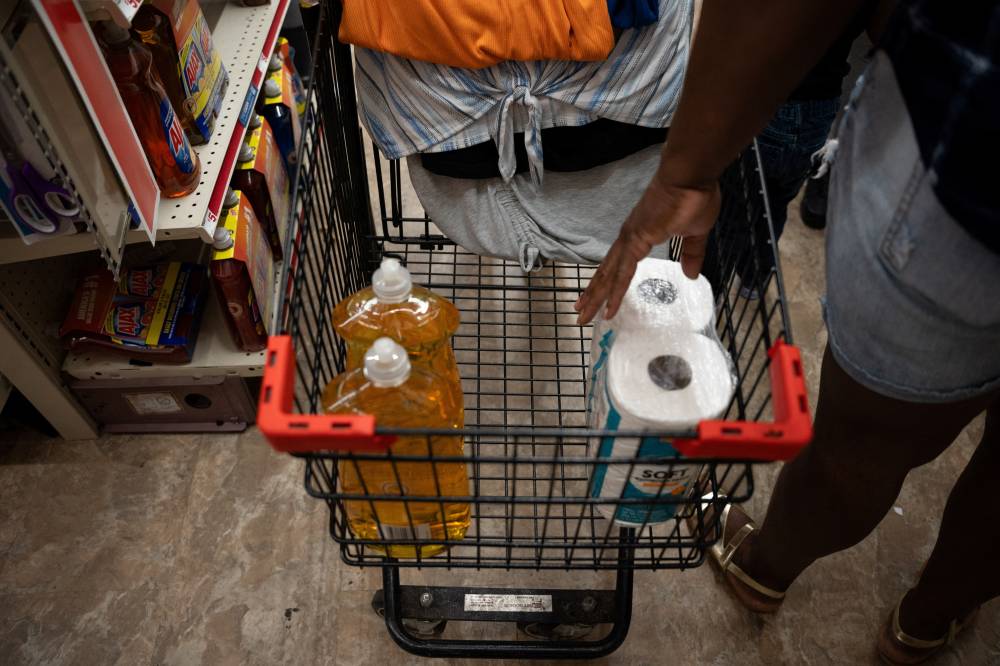‘Low income’ American folk buying less

Last of two parts
The poverty line is about $30,000 for a family of four, and the USDA considers a census tract or neighborhood “low-income” if more than 20 percent of people earn less than that figure, depending on the size of their household.
As Family Dollars close, those earnings buy significantly less at stores like Walgreens, 7-Eleven or local bodegas and gas station convenience shops that remain open.
For example, a package of eight Ball Park beef hot dogs costs $4.95 at Family Dollar, versus $5.99 at Walgreens. In Nashville at Salem Market, a convenience store at a Shell gas station, a 12-ounce box of Honey Bunches of Oats was $5.99. At Family Dollar, the same item is $3.75, according to Family Dollar’s website.
Most Family Dollar locations do not offer fresh fruit and vegetables, but for communities with little else, the shutdowns further limit residents’ options for buying food.
The stores also sell budget household essentials including laundry detergents, dish soaps and toiletries.
“When these close it is exacerbating an already existing problem,” said C.J. Sentell, the CEO of the Nashville Food Project, a nonprofit that distributes food to the city’s hungry. He said that North Nashville – where two Family Dollars closed recently – has bodegas and corner stores, some of which do not even sell milk, but very few grocery stores.
The closing of the dollar stores makes access to groceries even worse, he said.
“It’s not the best food but we can’t let the perfect be the enemy of the good,” Sentell added.
Since 2019, 61 municipalities including Chicago and Tulsa, Oklahoma, have taken a less positive approach to dollar stores, passing laws limiting their expansion on the grounds they undercut local grocers, according to the Institute for Local Self-Reliance, a non-profit.
Family Dollar did not respond to questions about such concerns.
Dollar stores – though all of them now sell merchandise for more than $1 – are among the fastest growing retailers in the United States.
Two companies, Dollar Tree, which owns and operates Family Dollar, and its bigger competitor, Dollar General , operate nearly 37,000 U.S. dollar stores.
Executives at Family Dollar’s parent company said in June it under-invested in many of the stores it is closing and that it would be too costly to fix them.
But the retailer is also continuing to expand in some areas, opening 69 new stores and relocating 19 in the half-year ended August 3, according to company disclosures.
Reopening
In its data analysis, Reuters found that the retailer opened just one store in a high-poverty area with only drug and convenience stores close by.
The store, in Norfolk, Virginia, is a reopening of one that had previously closed, according to local news reports.
Tonya Young, 53, of Nashville, shops at Family Dollar frequently, searching for store-brand snacks she can feed her three grandchildren who live with her.
“Prices are completely cheaper than Kroger, Walmart, Target,” she said, adding that she received food benefits until the beginning of this year and also qualified recently through one of her grandchildren.
She has turned to the resource center at Healing Minds and Souls, a local non-profit, more often since one of the Family Dollars in North Nashville closed. Healing Minds and Souls’ executive director, Ella Clay, said more people are using the center, which has food and personal items, after the bargain chain closures.
Stanley Chase, 64, who sells copies of “The Contributor” newspaper, previously depended on one of the Family Dollars that closed in North Nashville, located less than half a mile away from his apartment in a city-managed building. He made full dinners from the canned goods, meat, eggs and milk he bought at the store.
A veteran using a wheelchair, Chase does not own a car and supplements his income with food aid. He said he now faces a one-hour bus ride to go to Kroger, and when he can’t make that trip, he heads to a convenience store where he has spent $8 on hot dogs, more than double the price of those at Family Dollar.
His customers give him snacks like Nutrigrain and Millville granola bars, holding him over until his next trip to the supermarket, he said.
Sales booster
Family Dollar began laying the groundwork to accept food benefits about 20 years ago, hoping to boost sales. Stores installed coolers and expanded their food merchandise to qualify for the government program.
The investment paid off, and in the wake of the 2008 recession, Family Dollar’s sales surged.
Shoppers, flush with cash thanks to extra allotments for food benefits, also flocked to Family Dollar during the pandemic, stocking up on food, and additional discretionary items like toys and clothes.
The retailer said in March that it was closing about 600 Family Dollar stores over the next six months, and another 370 as leases expire. From early February to early August, 657 Family Dollars closed, according to securities filings.
In the Shepard neighborhood of Columbus, Ohio, Felicia Manns, a senior who was reluctant to give her age, is facing a similar situation to Begley and Young since the Family Dollar a short walk from her home closed.
Manns does not have a car, and often uses a wheelchair. She said she shops at the “dinkiest” convenience store nearby out of “desperation” and otherwise pays family or buys them gas to drive her to Kroger.
She said the community in Shepard feels “ignored” since the chain and a nearby Wendy’s fast food restaurant shut down.
“We’re all really tore up,” she said.
Reuters, the news and media division of Thomson Reuters, is the world’s largest multimedia news provider, reaching billions of people worldwide every day. Reuters provides business, financial, national and international news to professionals via desktop terminals, the world's media organizations, industry events and directly to consumers.

















